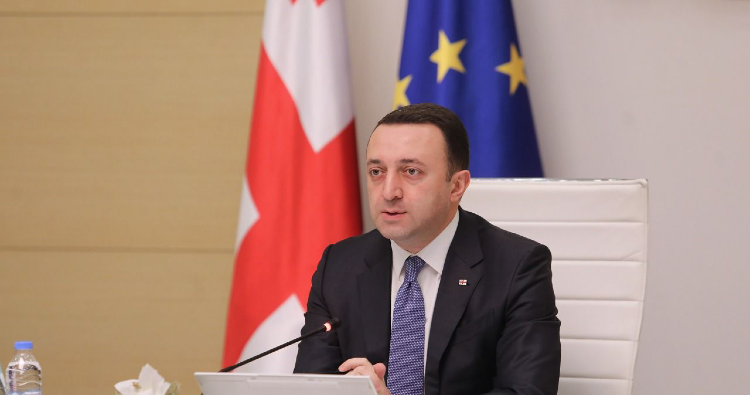PM hails “historic decision” by European Commission to grant country “European prospective”

Georgian Prime Minister Irakli Garibashvili on Monday hailed the “historic decision” by the European Commission to grant the country “European prospective” in the process of its European Union membership application. Photo: Government Administration
Georgian Prime Minister Irakli Garibashvili on Monday hailed the “historic decision” by the European Commission to grant the country “European prospective” in the process of its European Union membership application.
On June 17, the European Commission made a historic decision. For the first time, a historic record that the European Commission has recommended the European Council to grant Georgia the prospect of becoming a member of the European Union has been made”, he noted during a cabinet meeting.
As the European Commission President Ursula von der Leyen said, Europe has opened its doors to Georgia - it is truly a historic decision”, the Government head stressed.
The recommendations by the Commission that Georgia must implement are already on the Government's agenda, Garibashvili said, adding there were “other issues” on which work with Brussels would continue to ensure the country would obtain the membership candidate status.
He also noted the granting of the candidate status to Moldova and Ukraine, pointing out Ukraine’s position of being amid a “hardest war” and Moldova’s “very difficult situation” in bordering the former.
At the same time, they [Ukraine and Moldova] are being asked to carry out a number of reforms. In our case, on the contrary, we must first fulfil all the conditions that have been made, implement these reforms, implement priorities, and of course, after this Georgia will be granted the candidate status”, the Prime Minister said.
We are well aware that Ukraine is in the worst situation, with 20 percent of the territories already lost and the war [with Russia] continuing. Moldova is also in a very difficult situation - [...] Moldova was one of the first [countries to be affected by the conflict], because it is a bordering state and there [was a major flow] of refugees. Both economic and security risks have increased in Moldova [as a result of the war]”, he concluded.
The European Commission on Friday recommended the European Council to grant Georgia “European prospective” before assessing how the country meets a number of conditions for receiving the European Union membership candidate status.
 Tweet
Tweet  Share
Share